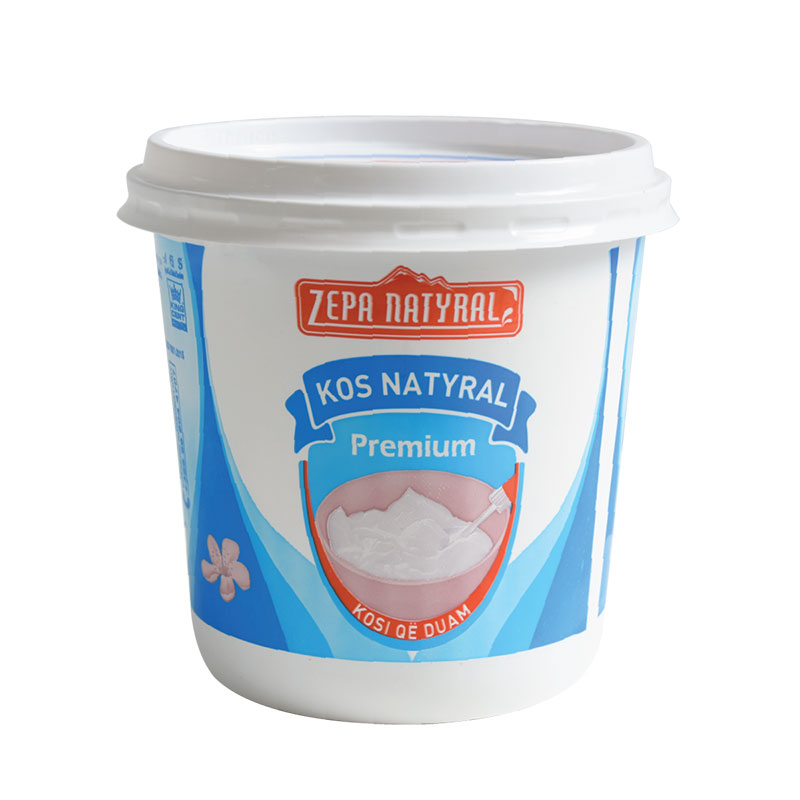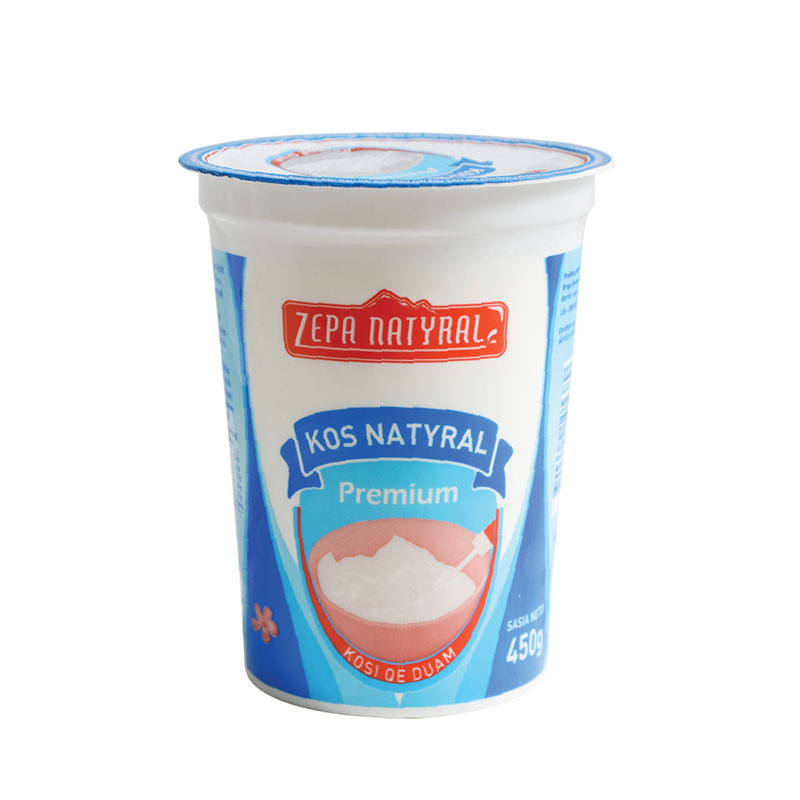Yoghurt and lactic ferments: Allies of your health
Yogurt is the main source of probiotic lactic ferments, a natural ally for the well-being of adults and children. It is recommended to consume one portion a day, to always keep the bacterial flora balanced and to prevent stomach, intestinal problems and flatulence.
Choose only quality yogurt, made with healthy and original raw materials, without added colors and sugars.
Since 2017, Zepa Natural collects milk from the best farms and processes it, to bring to your table the creamiest and most delicious yogurt that exists.
As an energetic breakfast or as a snack, Zepa Natural yogurt is perfect for any occasion and rich in nutrients.



What are lactic ferments and where are they found?
The term “lactic ferments” usually refers to those bacterial microorganisms involved in the fermentation of milk and capable of metabolizing lactose. Some of these microorganisms are able to carry out useful transformation processes for humans and are therefore called probiotic lactic ferments. The term probiotic, in fact, is derived from “pro bios” which means “in favor of life”. The best lactic ferments for our health are those that produce mainly lactic acid.
These are microorganisms of human origin, thus safe for humans, resistant to low pH values and able to easily attach and multiply on the surface of intestinal cells.
But what are these bacteria?
The most important probiotic lactic ferments are represented by Lactobacilli, Bifidobacteria and some Streptococci. If these names seem difficult to you, don’t worry: not only are these microorganisms present in a large number of everyday foods and regularly form (or should!) part of our diet, but these bacteria are also present in large amounts in our intestines. In fact, the human gut hosts what science calls the microbiota, which is the group of billions of microorganisms that live in our body’s digestive system and help it regulate many essential functions. It is estimated that over 4 million different types of bacteria coexist within the microbiota!
Lactic enzymes, as we said, are also present in various foods and therefore can be integrated in case of imbalance.
Yogurt is arguably the richest source of probiotic lactic ferments, followed by other dairy products such as fermented cheeses (ricotta) and buttermilk.
Lactic enzymes in yogurt: what are they for?
Lactic enzymes play a key role in the health of the body as they perform numerous beneficial activities, many of which affect the digestive system (stomach and intestines).
Let’s look at these advantages in detail.
Regulates bowel function
Lactic enzymes are able to restore balance to an unbalanced bacterial flora, for example after taking antibiotics. They help regularity of the intestines, have therapeutic effects on bloating, diarrhea and constipation, can relieve disorders caused by inflammatory bowel diseases and prevent colorectal cancer.
They strengthen the bacterial flora
Live enzymes strengthen the intestinal flora, a real barrier against pathogenic bacteria against which they perform a competitive action, using the same substrates for reproduction and inhibiting, producing with their metabolism substances with an antibiotic action that limits the growth of theirs.
A stronger flora also helps to strengthen the immune system, thanks to the production of substances such as vitamins and nutritional factors with beneficial consequences for the whole organism.
Allies against genital infections
Lactic enzymes can also be indicated in the treatment of various disorders and irritations at the genital level. Lactobacillus Bulgaricus is particularly useful against urinary tract infections, while Lactobacillus Acidophilus fights candida and vaginitis.
Yogurt probiotics
Probiotics are the so-called live lactic ferments; that is, as we have already seen, those that have the greatest beneficial properties for human health. For this to happen, they must arrive alive in the intestine and therefore cross the barrier of the stomach’s gastric juices and bile secretions unharmed. Although these bacteria are very resistant to low pH values, a large number of them will be degraded during the passage through the stomach, especially if we take them on a full stomach, when gastric juices are secreted in large quantities.
The secret to ensuring that this phenomenon is limited is that foods containing them, such as yogurt, are taken early in the morning on an empty stomach, when the production of gastric acids is minimal. In addition, it is very important that the lactic ferments are vital, so we consume fresh yogurt just taken out of the refrigerator. This will allow them to reach the intestine in sufficient numbers to multiply and perform their beneficial action.
It is generally accepted by science that probiotics can have a positive impact on lactose intolerant people. Taking lactic ferments is actually indicated for lactose intolerant people at a concentration of 300 to 700 million bacteria per day. The cause of this intolerance is due to the lack of lactase, the enzyme responsible for breaking down lactose into the two simple sugars that make it up, glucose and galactose. This deficiency can be physiological, in people with natural intolerance, or pathological, or temporarily caused by some diseases. Probiotics are able to improve the digestion of lactose; for this reason, many intolerant subjects are able to digest the lactose contained in yogurt and other fermented milk products more easily than that contained in milk.
Probiotics can be obtained through food, including yogurt and other sources of lactic ferments in your daily diet, or even in the form of nutritional supplements. In this case, it is always advisable to consult an expert, such as doctor or pharmacist.
In any case, for the probiotic effect to be effective, it is very important to follow the instructions for intake described above (on an empty stomach) and that the source of lactic ferments contains a large amount of it in a vital form.





